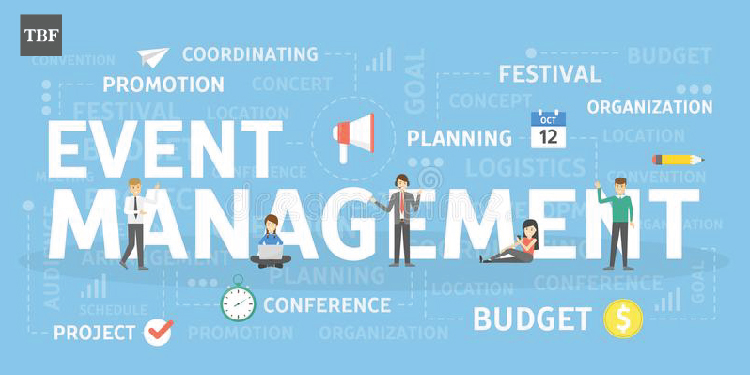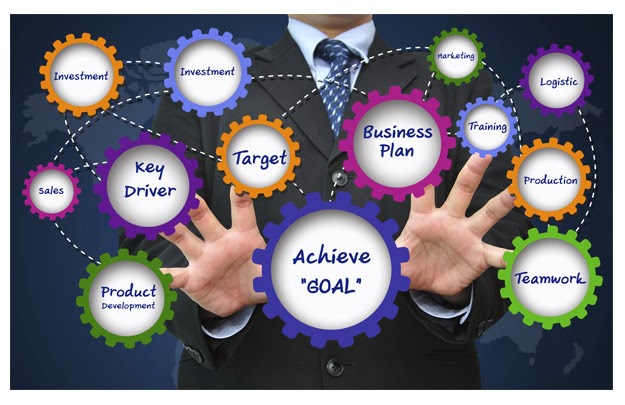Charlotte event companies: How to choose locations for big gatherings
A Deep Dive Into Just How Event Management Works to Produce Memorable Experiences
Event management is an intricate self-control that incorporates different components to craft extraordinary experiences. It requires a clear understanding of the event's objective and audience. Coordinators must browse budgeting, logistics, and marketing to ensure a smooth execution. Each part plays an essential role in attaining the preferred influence. However, the journey does not finish with the event itself. There are insights to discover that can form future undertakings.
The Principles of Event Management
Efficient event management encompasses a series of necessary principles that lead the planning and execution of effective occasions. At its core, it involves comprehending the event's objective, audience, and desired outcomes. Determining the target group is crucial, as it notifies choices associated with web content, marketing, and logistics.
Budgeting is one more essential facet, guaranteeing that resources are alloted successfully while meeting the event's objectives. This includes planning for unanticipated expenditures that might emerge.
Time management plays an important role, as event managers must develop a detailed timeline to collaborate numerous jobs and turning points.
In addition, efficient interaction among stakeholders, vendors, and team members is vital to assure placement and stay clear of misunderstandings.
Threat management should be thought about, with contingency strategies in area to deal with potential obstacles, consequently enhancing the overall experience for participants and assuring a seamless implementation of the event.
Secret Roles in Event Preparation
In event planning, understanding key duties is crucial for successful implementation. The event organizer is in charge of looking after logistics and guaranteeing all facets line up with the vision. In addition, efficient vendor management is essential for maintaining top quality and fostering solid collaborations throughout the planning procedure.
Event Coordinator Duties
An event planner orchestrates the complicated elements of event planning, ensuring smooth implementation from conception to verdict. They are in charge of conceptualizing the event theme, setting budgets, and creating timelines to maintain the task on track. Sychronisation with stakeholders, consisting of clients, location supervisors, and volunteers, is vital to line up expectations and help with interaction. The coordinator additionally oversees logistics, such as event catering, transport, and innovation needs, making certain all elements work sympathetically. They conduct website sees, handle schedules, and troubleshoot issues that might develop throughout the event. Post-event, the coordinator examines the event's success, collecting responses and evaluating end results to notify future projects. This multifaceted function needs strong organizational abilities, interest to information, and reliable interpersonal communication.
Vendor Management Essentials
Steering with the landscape of supplier management is important for effective event preparation. Efficient vendor management involves determining, selecting, and working with distributors who provide important services, such as event catering, audiovisual support, and design. Event coordinators need to keep solid communication with suppliers to assure that all aspects line up with the event's vision. Trick duties consist of the vendor supervisor, who looks after contracts and negotiations, and the logistics organizer, in charge of on-site arrangement and implementation. It's imperative to establish clear expectations and timelines, cultivating a collaborative setting that enhances the total experience. By focusing on these aspects, event planners can navigate prospective difficulties, guaranteeing that every information contributes to a smooth and remarkable event.
Crafting a Vision: Concept Development

When a vision is established, it ends up being necessary to convert it right into actionable components. This consists of specifying the atmosphere, choosing ideal locations, and establishing the event's style. Working together with stakeholders, consisting of enrollers and partners, additionally improves the concept, making certain that all parties share a combined understanding of the event's function. Eventually, a strong vision not just improves guest interaction yet likewise sets the phase for remarkable experiences that resonate long after the event ends.
Budgeting and Resource Allotment
With a clear vision in area, the following action in event management involves careful budgeting and resource allocation. This vital phase assurances that all needed parts are moneyed and straightened with the event's objectives. Event supervisors start by estimating expenses linked with place option, catering, amusement, and advertising and marketing. They create a thorough budget plan that details each category, enabling transparency and liability.
Source allotment extends beyond funds; it also incorporates personnels. Determining group functions, obligations, and timelines is necessary to assure effectiveness. Event supervisors should likewise consider backups for unexpected expenses or changes in scope, developing a buffer within the spending plan.
In addition, focusing on spending on elements that improve guest experiences is important. By purposefully designating sources, event managers make best use of effect while keeping economic control. This disciplined approach not only promotes effective events however likewise builds reputation and trust fund with stakeholders and participants.
Logistics: The Foundation of Event Implementation
While budgeting lays the groundwork for an event, logistics work as its foundation, guaranteeing that every element is carried out efficiently and efficiently. charlotte event companies. This incorporates a wide variety of activities, including venue choice, transport setups, and devices procurement. Effective logistics management calls for careful preparation and sychronisation to ensure that all elements line up with the event's timeline and objectives
Key parts of logistics include stock management, where materials and products are tracked to stop lacks, and staffing, which includes recruiting and training employees to manage different jobs. Interaction is likewise crucial, as it helps with partnership among vendors, sponsors, and the event team.

Advertising And Marketing and Promotion Techniques
Reliable advertising and marketing and visit site promotion techniques are necessary for making best use of attendance and involvement at an event, as they produce passion and enjoyment amongst prospective participants. Event managers use a mix of typical and electronic marketing methods to reach their target market. Social media site systems, e-mail projects, and targeted ads helpful resources are commonly used to produce buzz and foster neighborhood interaction. Cooperations with influencers or market leaders can boost reliability, while involving web content such as video clips and testimonies can reverberate with potential attendees.
On top of that, leveraging event-specific hashtags and producing shareable graphics motivates organic promotion amongst participants. Early bird ticket deals and unique promos can incentivize enrollment, additionally increasing interest. A properly designed internet site that uses very easy navigating and clear information concerning the event can enhance the individual experience. By implementing these advertising and marketing and promotion strategies, event supervisors can assure greater exposure and eventually develop an unforgettable experience for all individuals.

Gauging Success: Feedback and Examination
Success in event management depends upon robust feedback and analysis mechanisms. These processes are vital for figuring out the effectiveness of an event and recognizing areas for enhancement. By gathering input from attendees, coordinators can analyze contentment levels, comprehend preferences, and evaluate overall effect. Studies and interviews work as important tools for gathering measurable and qualitative data, permitting complete evaluation.
In addition, examining vital performance signs (KPIs) such as presence rates, interaction degrees, and roi (ROI) offers a more clear picture of event success. Post-event debriefing sessions with the planning team additionally add insights, fostering a culture of continual renovation.
Ultimately, a methodical technique to responses and evaluation not only improves future events however additionally reinforces relationships with stakeholders. By executing these methods, event supervisors can develop remarkable experiences that reverberate with individuals and drive check this ongoing engagement.
Regularly Asked Questions
How Do Event Managers Take Care Of Unexpected Difficulties Throughout an Event?
Event managers deal with unforeseen difficulties by staying calmness, reviewing the scenario, and applying backup strategies - charlotte event companies. They connect properly with their group, adapt rapidly, and focus on solutions to guarantee the event continues smoothly and effectively
What Modern Technology Devices Are Vital for Modern Event Management?
Vital technology devices for contemporary event management consist of event enrollment software application, job management applications, participant involvement systems, and analytics devices. These sources streamline processes, enhance communication, and improve overall event experiences for organizers and participants alike.
How Do Cultural Differences Impact Event Preparation and Execution?
Social differences significantly affect event preparation and execution. They influence styles, customizeds, interaction designs, and expectations, demanding tailored approaches to assure inclusivity and respect, inevitably shaping the overall experience and success of the event.
What Are the Honest Considerations in Event Management?
Moral considerations in event management incorporate openness, sustainability, social level of sensitivity, and inclusivity. Planners must prioritize justness, regard diverse target markets, decrease ecological effect, and warranty accessibility to develop liable and unforgettable experiences for all participants.
Just How Can Sustainability Be Integrated Into Event Planning?
Sustainability can be integrated right into event preparation by making use of green materials, reducing waste, sourcing local vendors, executing carbon countered programs, and advertising digital remedies to minimize paper use, thus boosting ecological consciousness within the event's framework.